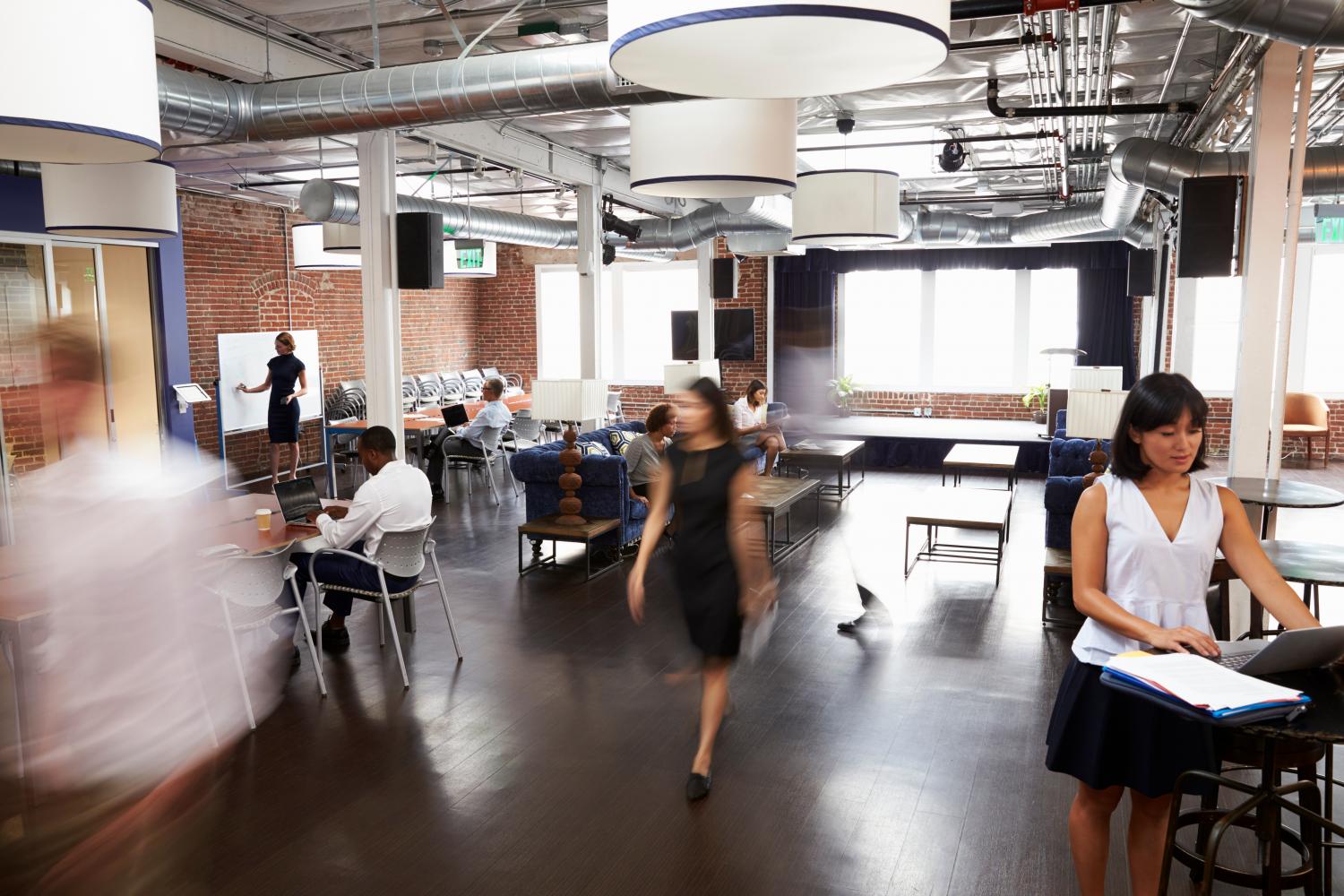One of the challenges facing organisations around the world during the Covid-19 pandemic is how to provide the most efficient office model that allows for the best mix of remote and office work.
Microsoft, for example, has evolved its own hybrid work strategy for more than 160,000 employees around the world. As for Google, the company has adopted a modified hybrid work model of three days in the office and two days of remote work.
And as the novel coronavirus continues to wreak havoc on the world's population, the hybrid work model is here to stay. Not only do well-designed hybrid work structures and workplaces pave the way for more efficiency, happiness and public health safety among workers, they are also an element that brings about sustainable growth of organisations and communities.
Earlier this year, Microsoft released the 2021 Work Trend Index that provided interesting insights on whether hybrid work is the next great disruption and whether people are ready to gear towards such a direction. The study involved more than 30,000 people in 31 countries including Thailand and an analysis of trillions of productivity and labour signals across Microsoft 365 and LinkedIn.
According to the 2021 Work Trend Index findings, a mix of remote and office work, known as hybrid work, is likely to become a fixture with over 70% of workers surveyed in favour of flexible remote work options. To prepare for such a significant move, 66% of business decision-makers are considering redesigning physical spaces to better accommodate hybrid work environments. It is evident that extreme flexibility and hybrid work will define the post-pandemic workplace.

"Over the past year, no area has undergone more rapid transformation than the way we work. Employee expectations are changing, and we will need to define productivity more broadly -- inclusive of collaboration, learning, and well-being to drive career advancement for every worker, including frontline and knowledge workers, as well as for new graduates and those who are in the workforce today. All this needs to be done with flexibility in when, where, and how people work," said Satya Nadella, CEO of Microsoft.
Microsoft is definitely not alone in this hybrid work bandwagon. Google earlier this year also announced a hybrid return-to-work plan which includes both remote and in-office options.
Google and Alphabet CEO Sundar Pichai said the plan would call for around 60% of Googlers coming together in the office for a few days a week, while another 20% will work in new office locations and 20% are anticipated to work remotely.
"For more than 20 years, our employees have been coming to the office to solve interesting problems -- in a cafe, around a whiteboard or during a pickup game of beach volleyball or cricket. Our campuses have been at the heart of our Google community and the majority of our employees still want to be on campus some of the time," Pichai wrote.
"Many of us would also enjoy the flexibility of working from home a couple of days of the week, spending time in another city for part of the year or even moving there permanently. Google's future workplace will have room for all of these possibilities."
"We'll move to a hybrid workweek, where most Googlers spend approximately three days in the office and two days wherever they work best."
In Thailand, a number of companies are facing the issue where after almost two years of working at home, a large number of office workers have grown accustomed to it. Many cite better work-life balance while they work from home and the ability to save more money and time compared to when they were required to travel back and forth pre-pandemic.
The flexible hybrid work system is the solution among many corporations as they allow people to be in the office two or three days a week. Many have adopted better virtual office technologies to enable employees to communicate more efficiently regardless of whereabouts.
Among businesses that have adopted the hybrid work model for employees is UOB Thailand. The bank believes that such a work model and flexible work hours can help employees manage their professional and personal lives better.
With the work-related new normal, UOB Thailand is planning to implement a Remote Work policy to give its employees the option of working remotely up to two days per week, starting at the beginning of next year. The announcement is part of the bank's commitment to help its workforce maintain a balance between professional fulfilment and mental well-being, especially as the prolonged pandemic has changed the way people get work done.
In addition to the Remote Work policy, the bank continues to provide Flexi-2, which allows all employees to take two hours off each month on workdays to attend to personal matters. Non-customer-facing employees will also have an option of staggered working hours and choose when they start their day at the office between 7.30am to 10am. This will give them more flexibility to manage their own work schedule.
Besides the hybrid work model, UOB Thailand's new head office, UOB Plaza Bangkok, is designed to provide high-performance workspaces that will provide a better work environment for its people. These workspaces will focus on cultivating team collaboration and engagement, fostering innovation, and enhancing employee safety. As remote and virtual working becomes the new norm, the bank sees the need to create a more connected, agile, and technologically-enabled work environment for the welfare of its employees.
The bank believes that its people will give their best when they are supported, happy and healthy and this will ensure a high-performing organisation that creates delightful customer experiences and contributes meaningfully to the economy.
Tan Choon Hin, president and CEO of UOB Thailand, said the past two years "have proven to be a test of resilience for all of us as we navigate the uncertainties of the Covid-19 pandemic."
"Despite these challenges, I am proud of our unwavering commitment to innovation, customer-centricity and sustainability. For more than two decades, we have been standing right by our customers, colleagues and communities in Thailand. Our new head office, UOB Plaza Bangkok, demonstrates our long-term commitment to the country, its economy and people," he said.
A place where employees can work without being physically tied to their workstation, UOB Plaza Bangkok will provide virtual platforms that enable staff to communicate and share ideas regardless of where they are. Workspaces will be purpose-built to maximise productivity and ergonomics. With appropriate density and options, employees can be more productive and comfortable in their collaboration.
Located in the heart of Sukhumvit, UOB Plaza Bangkok will be home to more than 3,000 UOB Thailand officers by May next year.
"We want our workplace and work-life culture to be ahead of the curve. As the world of work changes, so does the banking business, and it is changing at a faster rate than most of us realise. That is why we built UOB Plaza Bangkok to enable a more agile way of working where closer collaborations across functions can be achieved. In doing so, we are also preparing our people to be future-ready, ensuring that they stay relevant and equipped to respond to the fast-changing needs of businesses and consumers," Tan said.
Building Sustainable Cities is a 13-part series that explores essential elements & insights on how individuals and businesses can take action to forge a cleaner, greener tomorrow in collaboration with UOB Thailand. You can view the whole series here.


